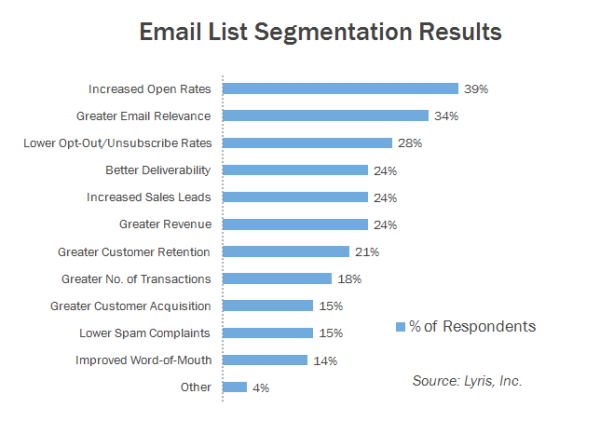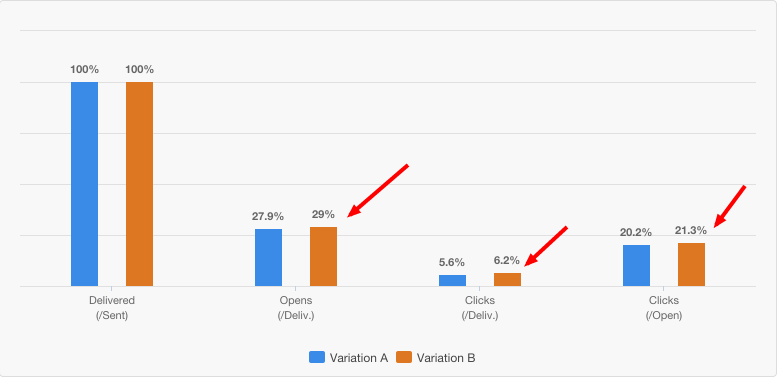Topics:
Marketing StrategySubscribe now and get the latest podcast releases delivered straight to your inbox.
 Right now, take a look around you. Seriously, go take a look. I’ll be here when you get back.
Right now, take a look around you. Seriously, go take a look. I’ll be here when you get back.
Notice anything?
People are starving for conversation.
Absolutely starving.
Walking around, heads bowed slightly, waiting for the next engagement in whatever conversations they’re currently having.
Facebook. Email. Twitter. Snapchat. Instagram.
(Be honest, how often do you break from a project to check any one of these? No? Pfft. Me either.)
If we’re so starved for conversations, why then, are marketing emails so damn hard to get opened?
It’s simple; because most emails are not vehicles for conversation. They’re dictations.
No one likes being talked at. If they did, they'd enjoy going to the DMV.
The fact is that everything from the subject line down is an opportunity to engage in conversation. If you’re missing these opportunities, here are four key areas for increasing engagement.
4 Principles for Getting Your Marketing Emails Opened
When.
Let’s just throw the numbers out there first: in the month of October, 53% of all email traffic to the IMPACT domain occurred on a Monday or a Wednesday.
Considering this only accounts for 28% of the week, it’s telling data that provides direction for marketing.
When it comes to connecting with others, modern technology enables us to pinpoint the best times for doing so.
Basically, send time optimization (as it’s often referred to in email marketing) is the same as calling your friend for happy hour when you know he’s just getting off work. Perfect timing.
Each of us has that window of opportunity. It could be specific days, times, or even weeks depending on your industry vertical. It’s critical that you uncover it, and that you focus your messaging completely around this window.
Otherwise your email will get buried and forgotten, falling victim to poor send time that may result in it never being seen.
Who.
Pinterest now boasts over 70 million users. (Source: Semiocast)
Pretty impressive, right?
But what happens if you try talking with your dad about it? Your husband? Boyfriend?
It probably doesn’t get very far, as 80% of Pinterest users are women.
It doesn’t really matter how important/valuable/popular you think something is in your limited vision if it's not applicable to your audience.
This is why telemarketing doesn’t work. Or email blasts. Or any other marketing tactic that relies on limited demographics rather than behavioral information.
Segmenting your emails based on previous behaviors or specific demographics can significantly impact your engagement rates. Below are the results of a study performed by Lyris on the subject of email segmentation.
 As you can see, companies that segment their marketing emails see a 39% increase in open rates, a 24% increase in sales leads, and 24% greater revenue.
As you can see, companies that segment their marketing emails see a 39% increase in open rates, a 24% increase in sales leads, and 24% greater revenue.
From.
This is one area that seems so blatantly obvious that it’s constantly overlooked.
After all, if the email comes from me, shouldn’t the from name be John Bonini?
Sure.
But consider using a "branded name" as well. For example, rather than recipients seeing my name and thinking, who the hell is that, they’ll see John from IMPACT as the from name instead.
“Ohh, right! I read their blog all the time.”
It’s the little things like this that contribute to people opening your emails. Most of the time, however, we’re not keyed into these small things. We’re more worried about the far sexier subject line – which we’ll get to – and the number of people on our list.
But this has real implications. I recently A/B tested this on a recent email to our mailing list of just over 20,000 people.

"Variation B" is from John from IMPACT, and as you can see, has just over a 1% difference in opens. Seems minimal, sure, but consider the fact that this is sent to 20,000 contacts who have already been receiving our content, and still there were 380 more opens when I branded my name.
Even more interesting is the fact that people who received the email from my branded name were also more likely to click-through to our website, presumably because they opened the email with a greater expectation of what was inside.
Try it out for yourself. You may be surprised at the amount of opens (and clicks!) you’ve been missing out on.
Subject.
Ah, finally – the subject line. The holy grail of email opens. The one place where we get to exercise our creativity, snark, and overall affinity for sexy words.
…or not.
Think of yourself in conversation in any high-anxiety environment, like an event you’re hosting or after speaking at a networking event. There is lots of noise, questions, and dialogue being thrown at you.
This is everyone’s email inbox.
Clarity is key here, as it’s our natural defense mechanism for dealing with confusion in large volumes. Make it actionable, as people picture themselves doing rather than hearing tips. Action is tangible.
Here are some other things to consider:
- Exclusivity: SEO tips that all the best marketing pros are practicing.
- Opening a knowledge gap: Do you know these 3 tips that could help you rank higher in Google?
- Scarcity: Registration for the SEO webinar closes tomorrow!
- Empathy: Sick of fluffy SEO tips? Here’s how to actually rank higher right now.
Each of these achieve clarity while also appealing to psychological tendencies.
People like feeling part of a specific group. They can't help but search for ways to fill their knowledge gaps. They have a fear of missing out.
Most of all, people like feeling understood. Like there are others who feel a deep connection to their interests.
This is why people are walking with their heads buried in their devices all day. It has nothing to do with the device itself. People have been starved for connection long before phones.
Are your marketing emails satisfying their need for genuine engagement?


Order Your Copy of Marcus Sheridan's New Book — Endless Customers!

